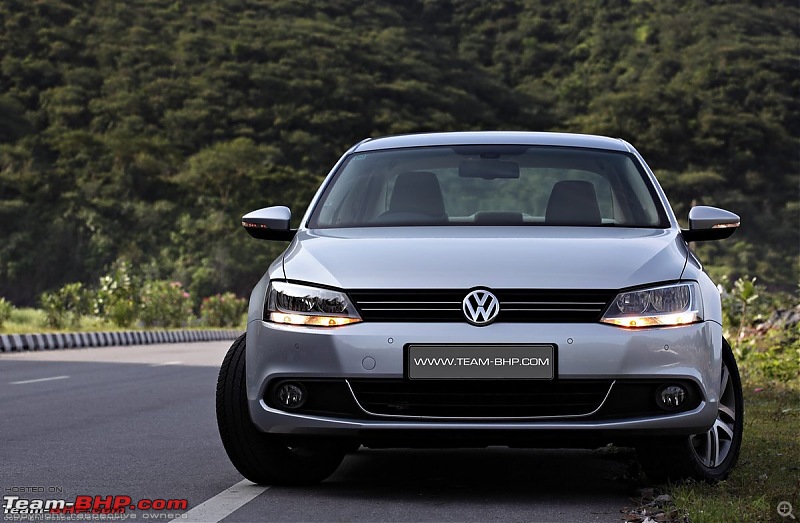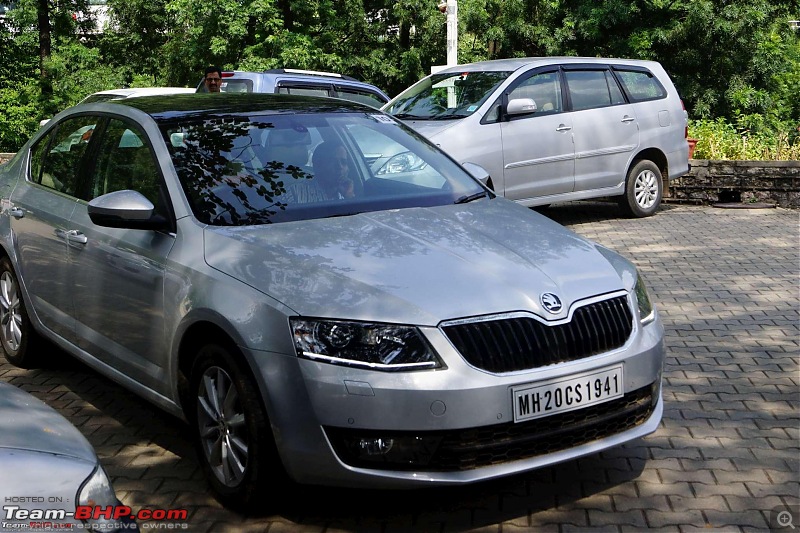Quote:
Originally Posted by vishy76  .......
However, the word weight has become ever so important in the Indian automotive scene due to the increased demand for fuel efficient cars and more importantly, because manufacturers know that only 2 or 3 out of 10 customers would care about how heavy the body shell of their car is.
.......
My question is, with cars getting lighter generation by generation, is it good or bad for customers in the long term? |
Quote:
Originally Posted by AYP  The sad part is, the 'thud' effect will keep on reducing. |
Quote:
Originally Posted by deerhunter  .....
If Mercedes is to ever make a car with the thinnest outer sheet metal and lowest gross weight, they'll still make sure that the doors close with a thud.
|
Quote:
Originally Posted by abhishek46 
Finally, even though manufacturers have proved that thin body panels can pass the crash tests due to clever structure inside, the real world is not a LAB. In real world the speed wont be precisely 64kmph/56kmph and the angle of impact & crash scenarios wont be fixed.
I would say that in real world crash scenario (which can happen from any direction, arbitrary speed), having both more mass along with clever engineering will hold an advantage.  |
The statement that "Cars have been getting lighter generation by generation" is actually not true. There have been ups and downs in the weight of cars in general during the course of its evolution.
Digging into a bit of history for a better perspective

If one observes the general trend of the weight of automobiles during the course of the last century, they started out as heavy behemoths. The design philosophy was to make them as rigid (heavy sheet metal) as possible. These cars only gave a perception of being safe, the body/passenger cage would actually disintegrate and open up in a collision due to the absence of a passenger safety cage.
After the oil crisis in the 60s and 70s, cars started getting smaller and lighter to be more efficient and the trend continued through the 80s and most of the 90s and this is the period in which safety aspects of the design started to get a lot of attention with monocoque body, safety cage, crumple zones and focus on structural reinforcements, cars started getting heavier again after the late 90s.
The need to meet crash regulations especially in the EU and North American markets have actually dictated the weight of cars.
In addition to having a strong passenger safety cage, crumple zones and all the passive safety features, the cars designed for these markets have to have strong reinforcements, resistance to footwell intrusion, better side impact collision safety.
So cars designed for these markets end up becoming heavier just to meet the safety requirements, only then they become eligible to be sold/marketed. Even prospective buyers look at crash test results and make their purchasing decisions with more emphasis on safety aspects and select safer cars.
Even in these markets, the newer cars are coming out lighter than they use to be after using lighter composites and alloys such as Boron Steel. While they may be relatively lighter than before, they will still continue to be heavier compared to cars designed for emerging markets with weak regulations.
The Thud factor has mellowed down in the newer generation BMWs due to the use of lighter (yet strong) aluminium alloys on the doors

India is a relatively nascent car market where the Govt safety crash test regulations have been poor and customer mass awareness about safety (purchase decisions based on crash test results) is still yet to shape up.
In such a scenario, the manufacturer has a free hand in deciding how heavy or light the car can be. They are not bound to meet any high safety crash resistance standards like in the EU or NA, so they can get away by designing lighter cars for our market and cut the weight further to make them as fuel efficient as possible.
The popular purchasing decision is on fuel economy, the customer emphasis on structural safety is yet to catch up on a popular scale.
A car can be light yet safe with proper design. The sheet metal could be thin yet the passenger frame could be strong enough to resist intrusion with proper crumple zones to dissipate impact forces. But it would be good to have best of both worlds read: thicker sheet metal and strong safety cage/structure like the european design philosophy.



 (21)
Thanks
(21)
Thanks

 (25)
Thanks
(25)
Thanks

 (25)
Thanks
(25)
Thanks
 (11)
Thanks
(11)
Thanks

 (10)
Thanks
(10)
Thanks

 (7)
Thanks
(7)
Thanks
 (8)
Thanks
(8)
Thanks
 (2)
Thanks
(2)
Thanks
 (3)
Thanks
(3)
Thanks
 (16)
Thanks
(16)
Thanks
 (5)
Thanks
(5)
Thanks

 (12)
Thanks
(12)
Thanks
 (3)
Thanks
(3)
Thanks

 (17)
Thanks
(17)
Thanks
 (3)
Thanks
(3)
Thanks








 And many such irrelevant and silly situations where a thicker sheet metal helps without the compromise of FE & safety.
And many such irrelevant and silly situations where a thicker sheet metal helps without the compromise of FE & safety.

